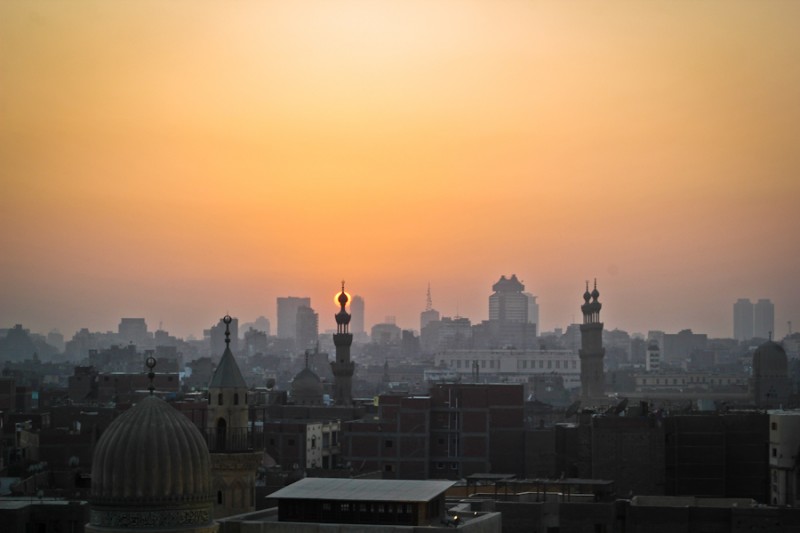For Roads and Kingdoms, my dispatch from Cairo on how Egyptians view Obama versus Romney and what the US president means (or doesn’t) to them.
(photo credit: Mosa’ab Elshamy)
The call to prayer at sunset bursts into Somaya’s Kitchen, a one-woman, hole-in-the-wall-of-a-downtown-alley restaurant, as the feisty Somaya herself swings open its green doors covered in anti-military stickers.
Revolution-inspired art and photographs of early 1900s Cairo overlook political activists nestled between patchwork folk art cushions at three tiny, brightly painted tables, where passionate political debate is standard fare. Today’s table topics: Egypt’s constitution-to-be, a proposed restaurant and shop curfew, the need for interior ministry reform. The U.S. presidential election? Not on the menu.
“We’ve got more than enough to worry about with Morsi,” the 42-year-old Somaya says, roughly chopping a bundle of molokheya, bitter greens common in the Egyptian kitchen. “I didn’t even know about the U.S. election, and I don’t care. Whoever wins won’t make a difference to us.”
Dinner is served: rice with golden vermicelli, green bean stew, and roast chicken. No special today.
***
Arabic-language news of the U.S. election blares from a small TV in an electronics shop in Tahrir Square. 24-year-old Waleed has witnessed his share of Egyptian political instability from the window of this shop, and experienced plenty of financial flux as a result of it.
“Romney is unknown, too risky for the Middle East. He seemed excited to go to war with Iran in the debate,” he says. “With Obama we know what we’re getting—no change—and that’s exactly what we need right now.”
A mass of bodies and vehicles continues seeping into downtown from seemingly out of nowhere, flooding streets and alleys during the after-work rush hours (yes, plural). Many of those bodies end up in a hodgepodge of colorful plastic chairs in Borsa, the alleys around Egypt’s stock exchange, smoking sheesha and playing backgammon.
“We won’t care until America shows interest in Egyptian people, not politics,” 31-year-old professor Mona says, cupping her Nescafe with both hands for warmth as the night cools. “What happened to Obama’s 2009 promise of “dialogue” between the Middle East and West? I’m not seeing that exchange program on the ground.”
Along with the requisite football matches, breaking political news on Borsa’s flatscreens has arrested the attention of hundreds gathered here over the last few years.
Tonight, no one looks up as an aging bellydancer sways mournfully on screen.

